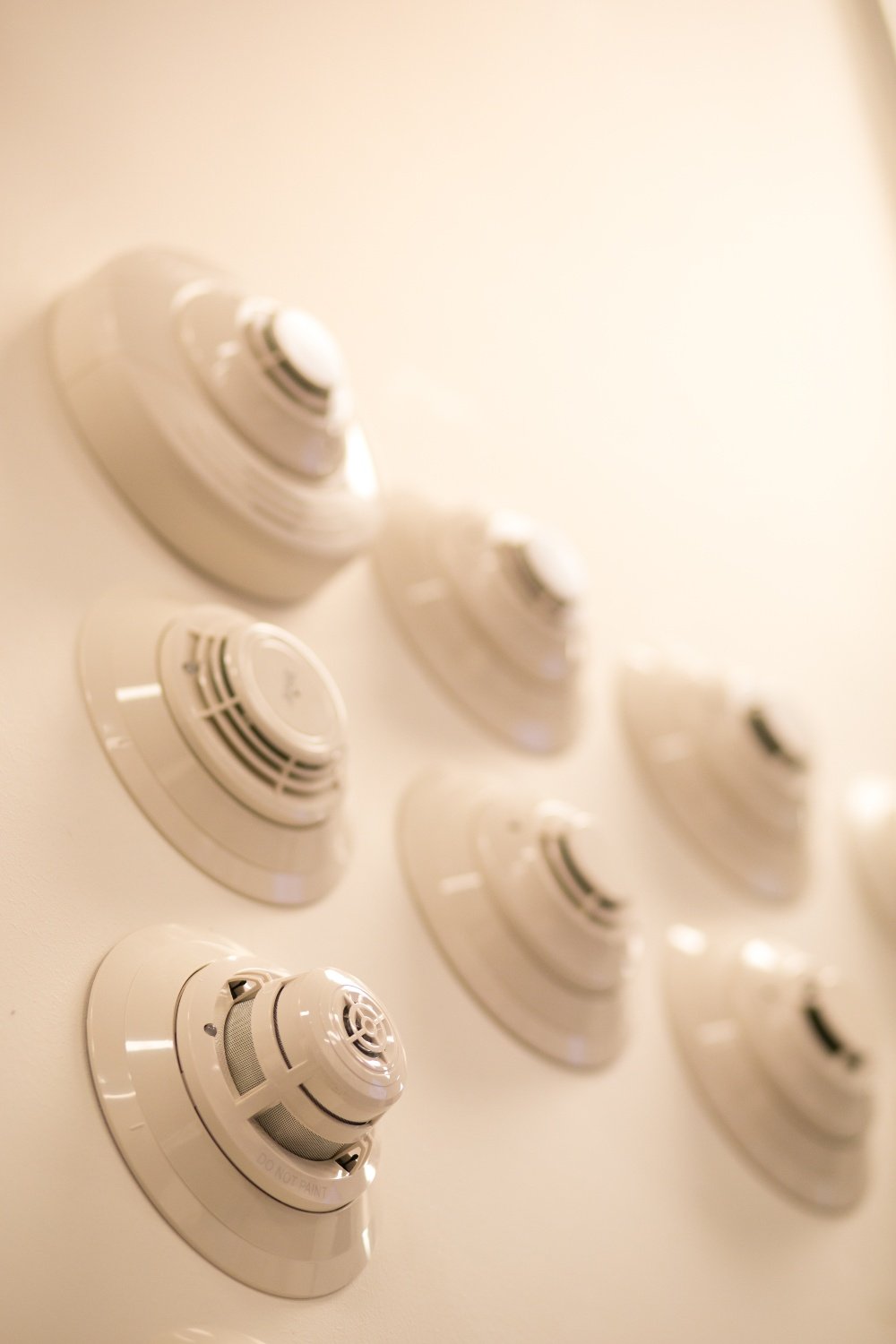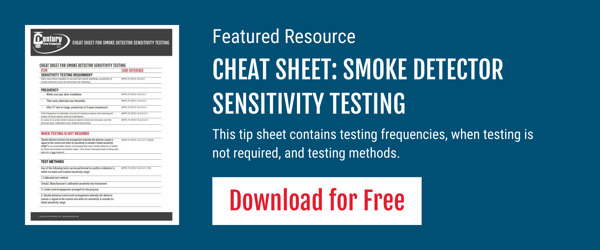A lot of questions come up when smoke detector sensitivity testing is discussed or cited by the AHJ.
There are two key things you need to know:
- Sensitivity testing is required unless it is monitored continuously by the fire panel and you are alerted when sensitivity is out of range.
- The frequency will depend on the date and results of the last test.
Is sensitivity testing required?
Yes. Sensitivity testing must be performed per NFPA 72. However, depending on the type of detectors installed and the capabilities of the fire alarm control panel, you may be able to avoid the costly process of performing a sensitivity test at each detector.
NFPA 72-2016 14.4.3.2-17 (h)(4) states that “Smoke detector/control unit arrangement whereby the detector causes a signal at the control unit when its sensitivity is outside it listed sensitivity range” is an acceptable means of ensuring that each smoke detector is within its listed and marked sensitivity range. This means that physically testing each detector is not required.
Most newer panels will have this capability. Check with your fire alarm contractor to confirm the type of detector and control unit to determine its capabilities. Looking for detectors that work with your fire alarm panel? Shop here in the Century Fire Parts Store.
Also, many systems will have the ability to view and save a copy of the sensitivity readings from the fire panel software after annual testing. This will allow you to have a record of the sensitivity at the time of the annual test; although, this is not a requirement of the code.
What is the frequency of testing?
It depends on the time and results of the last two consecutive tests.
Smoke detector sensitivity must be checked within one year after installation, then checked every alternate year thereafter. After the second test, if test results indicate that the device remains within its listed and marked sensitivity range, the length of time between tests is permitted to be extended to a maximum of 5 years. (NFPA 72-2016 14.4.4.3.1 – 3). READ MORE ABOUT SMOKE DETECTOR SENSITIVITY TESTING REQUIREMENTS HERE
Need help? We are here for you! Call us at 866-530-3743 or contact us here.
The information provided is for general informational purposes only. Every fire protection system is unique, with specific inspection, testing, and maintenance requirements determined by system type, manufacturer specifications, building use, and local regulations. Consult a qualified fire protection professional or your local Authority Having Jurisdiction (AHJ) to ensure compliance with applicable standards. Century Fire Protection assumes no liability for actions taken based on this content.


